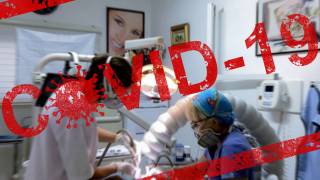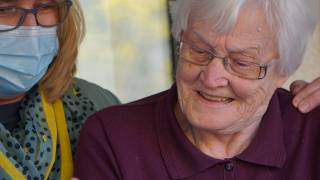UK Announces Vaccination Priority Groups

The UK's Joint Committee on Vaccination and Immunisation (JCVI) preliminary advice was announced to facilitate the deployment of any safe and effective SARS-CoV-2 coronavirus vaccine(s) as soon as licensure is obtained for use in the UK.
The JCVI committees’ advice which prioritizes coronavirus infection preventive vaccination for frontline healthcare staff and social care workers, was published on June 18, 2020.
‘These care workers are at an increased personal risk of infection and of transmitting the coronavirus to susceptible patients and vulnerable populations, such as the elderly in care homes.’
The JCVI continued stating ‘vaccination of these key workers will protect at-risk populations and help maintain resilience in the NHS.’
Following those prioritized individuals, those at increased risk of serious disease from COVID-19 infection stratified according to age and risk factors would be a second group to receive vaccinations.
Male gender also appears to be associated with increased mortality from COVID-19 disease.
The underlying principle of this JCVI advice, which was developed following a request from the Department of Health and Social Care and Public Health England, is to save lives and protect the NHS.
This early interim advice has been developed based on a review of UK epidemiological data on the impact of the COVID-19 pandemic during 2020.
Unfortunately, there is no data currently available on the efficacy and safety of COVID-19 vaccine candidates in development.
A listing of vaccine candidates is published on this webpage.
This is the start of a longer process, and the advice provided at this stage is preliminary and limited in terms of detail.
There are a number of unknown factors about any potential vaccines, and there are still important gaps in our understanding of COVID-19.
On May 7, 2020, the JCVI considered epidemiological, microbiological, and clinical information on the impact of COVID-19, including data on disease incidence, hospitalization, and mortality associated with COVID-19 disease.
Specifically, this advice will be updated as more information becomes available on:
- vaccine efficacy and/or immunogenicity in different age and risk groups,
- the safety of administration in different age and risk groups,
- the effect of the vaccine on the acquisition of infection and transmission,
- the transmission dynamics of the SARS-CoV-2 virus in the UK population, and
- the epidemiological, microbiological, and clinical characteristics of COVID-19.
There is ongoing work within the UK to refine the identification of persons at risk of serious disease and mortality from COVID-19 infection, commented
As well as age and underlying co-morbid conditions, the committee notes that early signals have been identified of other potential risk factors, including deprivation and ethnicity.
As more evidence on at-risk groups emerges, this work will inform the review of the composition, and order of priority, of groups for vaccination.
The JCVI committee stated it ‘will be keeping its advice under review and as more information becomes available will update its advice as and when deemed appropriate.’
The JCVI advises UK health departments on immunization and is led by Professor Andrew Pollard, University of Oxford.
Any conflict of interest declared by members of JCVI is published as an annex to the minutes of each JCVI meeting. The JCVI code of practice provides information on how conflicts of interest are managed.
An article published in the New England Journal of Medicine (NEJM) on May 23, 2020, discussed the rapidly growing imbalance between supply and demand for medical resources in many countries presents an inherently normative question: How can medical resources be allocated fairly during a Covid-19 pandemic?
Led by Ezekiel J. Emanuel, M.D., Ph.D., these international authors said ‘in the context of a pandemic, the value of maximizing benefits is most important.’
‘This value reflects the importance of responsible stewardship of resources: it is difficult to justify asking health care workers and the public to take risks and make sacrifices if the promise that their efforts will save and lengthen lives is illusory.’
‘We believe guidelines should be provided at a higher level of authority, both to alleviate physician burden and to ensure equal treatment,’ concluded this NEJM article.
Coronavirus vaccination news published by Precision Vaccinations.
Our Trust Standards: Medical Advisory Committee

























